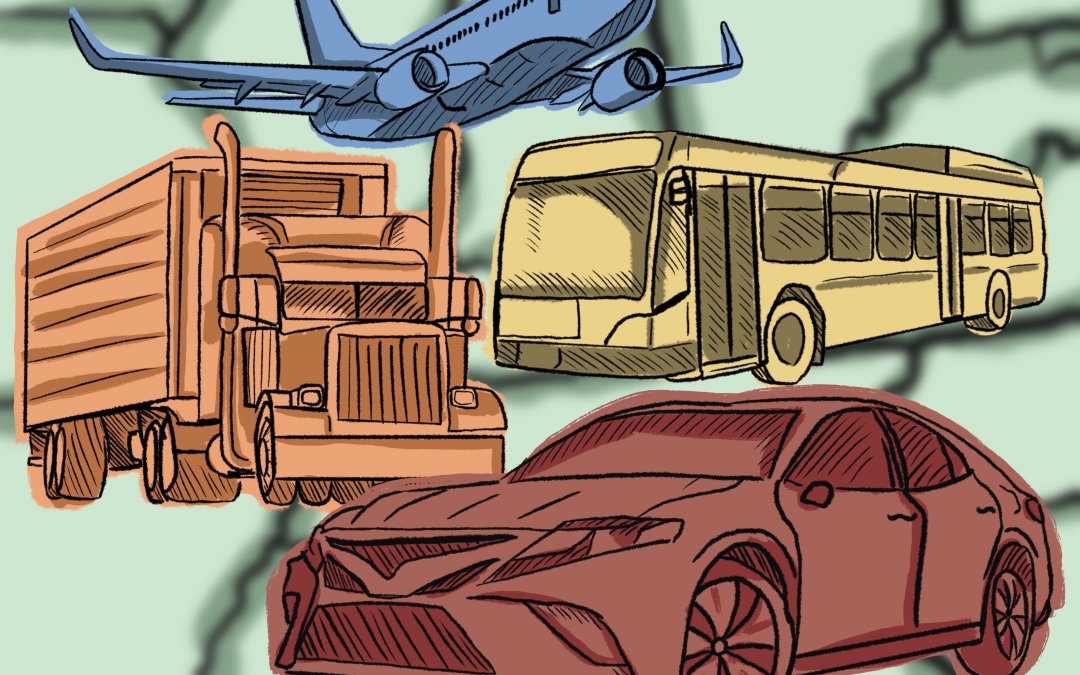WASHINGTON – Congressional lawmakers and witnesses examined whether slower U.S. infrastructure growth and disruptions in the supply chain are hurting basic transportation needs during a hearing on Wednesday assessing the state of the industry.
Rep. David Rouzer (R-N.C.), chair of a House Transportation subcommittee who presided over the hearing, cited the Iranian-backed Houthi militant group in his opening remarks as a significant threat to a crucial global shipping route in the Red Sea. Rouzer said major shipping carriers must now opt for longer, costlier routes, such as around the Cape of Good Hope in South Africa.
He also condemned the ongoing migrant crisis at the southern border, which forced American border officials to close two crucial rail bridges from Mexico into Eagle Pass and El Paso, Texas, in December. The closings came after U.S. Customs and Border Protection found a resurgence of smuggling organizations moving migrants through Mexico on freight trains, according to a CBP statement.
Rep. Jeff Van Drew (R-N.J.) contended that the mass influx of illegal immigration is disrupting supply chains “even thousands of miles away from our southern border.”
Van Drew said the rail border crossings account for roughly $34 billion in commerce. “How much more money does our country need to lose through the effects of these illegal crossings? How much more evidence does this administration need before it will finally take action? Enough is enough.”
One freight brokerage executive, Jeff Tucker, the CEO of Tucker Company Worldwide, said his company is closely watching for disruptions to cargo at the border.
“There is a humanitarian crisis associated with what’s happening down there, with individuals jumping onto the train — children, women, men, people of all ages. I’m glad that I am not the one in charge of having to deal with this mess,” he said.
He implored politicians to work closely and communicate with transportation industry workers, who witness the daily effects of supply chain disruptions. “When we’re surprised and don’t have any opportunities to divert our routes, that’s very painful,” Tucker said to Van Drew.
Rouzer asked about the ripple effect of cargo vessel attacks in the Red Sea on America’s supply chain. He called upon Stephen Edwards, the CEO of the Port of Virginia, one of the country’s largest and busiest container ports, on what he’s seen.
“The initial impact is the delay in vessels arriving both in Asia and coming back to the United States, and the redeployment of ships to cover those slots elsewhere,” Edwards said. He said international ocean carriers must reschedule their ships, estimating an extra seven days for cargo ships traveling from Southeast Asia to the East Coast of the United States.
Company officials also said the U.S. increasingly relies on its southern neighbor for manufactured goods and raw materials due to escalating trade disputes with China and other disruptions, according to Tucker.
He said regional manufacturing in Mexico eliminates the concerns of a single point of failure — a phenomenon in the supply chain world where one failure causes the takedown of the entire system — that sparked when the U.S. solely relied on China for critical goods.
“I don’t know how many members here have been to the border. I’ve been there, toured it, and it’s a heck of a thing,” Tucker said. “We all know how much freight came from China and the Far East, and now a lot more of it will come through the border, where we now have major security concerns.”
Rep. Troy Nehls (R-Texas) cited one company that was deeply affected by the rail closures — the Union Pacific Railroad. He said it reported nearly 4,500 railcars were held south of the border and asked Tucker how his organization handled a similar rate of shipping suspension.
Tucker said most of his goods, such as grains, are perishable and that delivering delayed consumable goods has significant ripple effects on the country’s access to nutritious, fresh food.
As the U.S.-Mexico border issues continue, shipping companies must learn to pivot quickly to maintain significant profit and public trust. “As I said earlier, way more freight is moving north from Mexico. Please expect that to continue over the next decade. We just can’t afford to have a closure like that again.”

